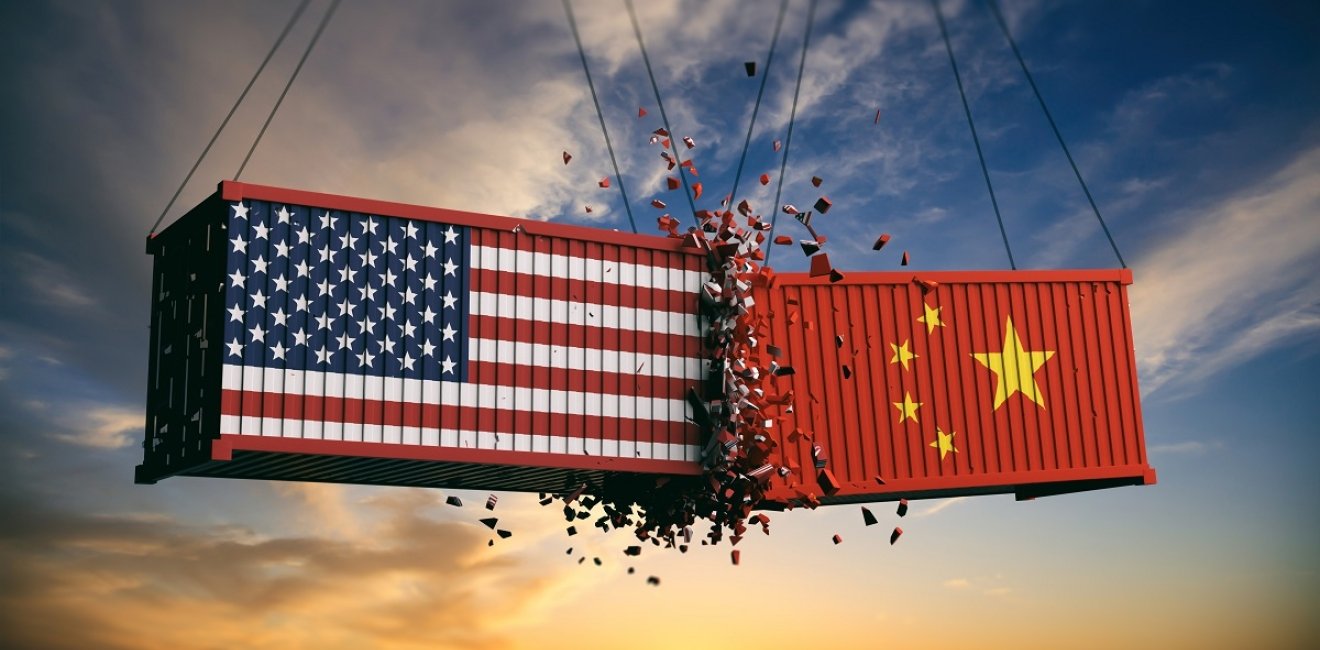Janet Yellen is among the most accomplished and respected members of President Joe Biden’s cabinet and her speech on China last Thursday at the Johns Hopkins School of Advanced International Studies struck some chords that will resonate throughout the international community.
She offered a most welcome acknowledgement of the obvious by suggesting that China is formidable, that it is not going away, and that a constructive relationship with Beijing is in the interests of the US.
“We do not seek to ‘decouple’ our economy from China’s. A full separation of our economies would be disastrous for both countries. It would be destabilizing for the rest of the world. Rather, we know that the health of the Chinese and US economies is closely linked. A growing China that plays by the rules can be beneficial for the United States,“ she said.
At a time when bilateral tensions are running as high as they have in decades, her message was a reassuring step toward putting relations back on a more productive track.
An internationally acclaimed economist, Sec. Yellen knows whereof she speaks. She is also savvy enough to realize that if the US decides to sever its links with China, it will do so on its own. Unlike the solidarity so evident in sanctions against Russia, there is little stomach among US allies to walk away from economic relations with a country that ranks as the number one trading partner for 120 countries.
But for all her wisdom in extending a hand to Beijing, her speech was also replete with accusations that China has failed to meet its international economic obligations and that Beijing’s actions can be interpreted as a threat to US national security.
“The open, fair, and rules-based global economy that the United States is calling for is the very same international order that helped make China’s economic transformation possible,” she noted.
The rules to which Sec. Yellen refers are presumably those of the World Trade Organization.
China’s trade policy certainly warrants scrutiny. Government interference – and discrimination against foreign companies – is widespread in the finance, media, automotive and telecommunications sectors. Sec. Yellen is fully warranted in taking the Chinese to task for failing to adhere to WTO rules. The only problem is that on this score, she sounds very much like someone who is heaving stones at Beijing while residing in a glass house.
Let’s explore just one example.
President Donald Trump, at the urging of his Commerce Secretary and US Trade Representative, slapped tariffs of 25% on steel and 10% on aluminum, measures which covered imports from virtually all US trading partners. By way of explanation, the Trump administration trundled out an element of US trade law known as Section 232.
The rationale for these actions? National security!
The duties on steel and aluminum were applied to products coming from Australia, Canada, Brazil, the European Union, Japan, Russia, Turkey, Switzerland, Norway, India, Mexico, South Korea and the United Kingdom. In the case of China, there was little steel to turn away because US anti-dumping and countervailing duties had already cut China’s share of the US market to around 2%. Apart from Russia, it remains difficult to make the case that any of the other countries on that list represents a threat to US national security.
The Secretary is a big fan of “friend-shoring,” or seeking to shift supply chains to countries with which the US has friendly relations. Yet the Trump tariffs were not motivated by friendship. If the goal of the Section 232 tariffs was to slash the US trade deficit with China or revive the struggling metals industries, then they failed categorically. But if the objective was to alienate US trading partners, they succeeded brilliantly.
The response from the European Union to US tariffs was the immediate application of eye watering duties on bourbon, motorcycles, farm products, and blue jeans, as well as steel and aluminum, from the US.
It’s true that all these actions were taken before Joe Biden became president. It’s also true that many barriers imposed by Trump remain in place under Biden. Washington reached deals with several of the countries affected by the steel and aluminum tariffs and those countries dropped dispute settlement cases they had filed against the US at the WTO. But four others – Norway, Turkey, Switzerland and China – did not. On 9 December 2022, a WTO dispute panel ruled against the US.
Yellen said in her remarks, “Even though these policies may have economic impacts, they are driven by straightforward national-security considerations.” The Biden administration introduced its own standard for national-security exceptions when it restricted exports to China of advanced semiconductor equipment which might enhance China’s military capabilities.
The Biden administration might have used the WTO ruling as a reason to step back from Trump’s ludicrous assertion that somehow steel imports from Norway, a NATO member, or neutral Switzerland, threatened US national security. But no. Instead, US Trade Representative Katherine Tai charged that the WTO is “skating on thin ice.” Assistant US Trade Representative Adam Hodge, adding that the US did "not intend to remove the Section 232 duties as a result of these disputes," was a direct rebuttal of what Sec. Yellen cited as “The open, fair, and rules-based global economy that the United States is calling for.” Thumbing its nose at global trade rules not only undermines US credibility but opens the door for unbridled use of the national security exception by economic rivals.
In extending an olive branch to Beijing, Sec. Yellen merits praise. But her message would have been better received had Washington shown that it practices what it preaches.
Author

Director of the Information and External Relations Division and Chief Spokesman at the World Trade Organization (retired)

Wahba Institute for Strategic Competition
The Wahba Institute for Strategic Competition works to shape conversations and inspire meaningful action to strengthen technology, trade, infrastructure, and energy as part of American economic and global leadership that benefits the nation and the world. Read more

Explore More
Browse Insights & Analysis
US Inaction Is Ceding the Global Nuclear Market to China and Russia

Promoting Convergence in US-Brazil Relations


